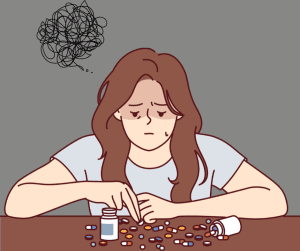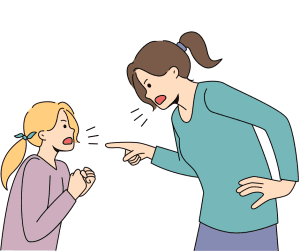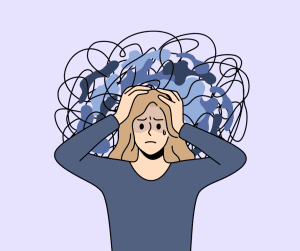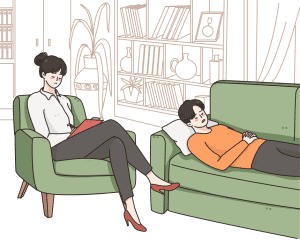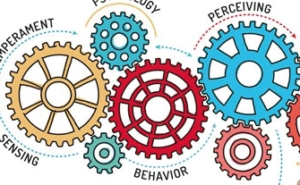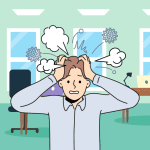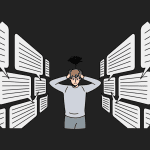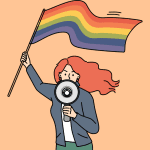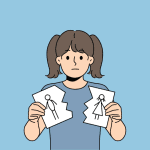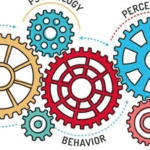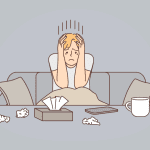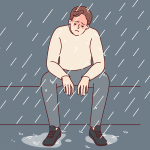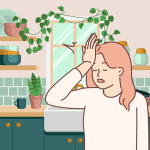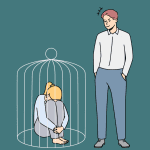Anxiety is a lot like a toddler. It never stops talking; tells you you’re wrong about everything and wakes you up at 3 AM.
Butterflies in your stomach before an important event? Worried about how you will meet a deadline? Nervous about a dental or medical procedure?
If so, you are like most people. Anxiety is a normal and often a healthy emotion. However, it is worth noting that every
one struggles to a certain extent with anxiety from time to time. We fret over finances, feel anxious
about job interviews or get nervous about social gatherings. These feelings can be normal or even helpful. They may give us a boost of energy to help us focus. Nevertheless, the way we experience it differs from one person to another and what may cause stress to me might not be so stressful to someone else.
Yet, some of us have a closer relationship with it than others. For some it can be more difficult to manage and can feel overwhelming. When a person regularly feels disproportionate levels of anxiety, it might become problematic. The clearest indication that anxiety is becoming problematic may b
e finding it increasingly difficult to do things that the person used to do relatively easily. For example, what if someone will not leave their home for extended periods of time because they’re afraid of being in a crowd or being reminded of a past traumatic event. That is not a “normal feeling or experience”. When anxiety begins to interfere with our daily functioning and causes impairment, it might be more problematic than “everyday stress”.
When this gets in the way of good health and peace of mind, it’s called an anxiety disorder. The worry experienced by those with chronic anxiety is distinguished by its persistence and intensity which is often out of proportion for the present situation. Anxiety-related disorders feature worry, nervousness, or fear that is ongoing, excessive and has negative effects on a person’s ability to function healthily in important facets of life.
Types of Anxiety-related disorders:
- Generalised Anxiety Disorder
This is characterized by excessive anxiety about real-life concerns, such as money, relationships, health and academics. This often with little or no reason.
- Social Anxiety Disorder / Social Phobia
This is when you feel overwhelming worry and self-consciousness about everyday social situations. You fixate about others judging you or on being embarrassed or ridiculed.
- Panic Disorder
This is characterized by reoccurring unexpected panic attacks. Panic attacks are sudden periods of intense fear that may include palpitations, sweating, shaking, shortness of breath, numbness, or a feeling that something terrible is going to happen.
- Specific Phobias
You feel intense fear of a specific object or situation, such as heights or flying. The fear goes beyond what’s appropriate and may cause you to avoid ordinary situations.
If you’re suffering from symptoms of anxiety, t is not uncommon to feel alone and misunderstood. The fear that people with anxiety experience, is not experienced by others and as a result they might not understand the reason behind it. Most assume that if you cannot see it, it’s not really there. Yet we all know that at times, the most painful demons are the ones that you cannot see.
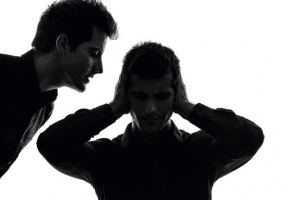
Common Symptoms of Anxiety:
- Breathing difficulties
- Panic, Fear and Uneasiness
- Headaches
- Trembling
- Nausea & Dizziness
- Diminished capacity to self-regulate
- Sweating
- Difficult concentrating
- Difficulty falling or remaining asleep
- Increased blood pressure
How can I manage my anxiety ?
Whether you have occasional anxiety or a diagnosable anxiety disorder, the good news is that you can take a number of small, effective, straightforward strategies every day to help manage and minimize your anxiety. Most of these steps contribute to an overall healthy and fulfilling life.
9 ways on managing Anxiety:
- Take a deep breath and focus on right now
When we are anxious, we are usually obsessing about something that might occur in the future. Instead, the first thing to do when you feel anxious is to pause, BREATHE and pay attention to what’s happening right now. This will help activate your body’s relaxation response.
Try slowly inhaling to a count of 4, starting at your belly and then moving into your chest. Gently hold your breath for 4 counts. Then, slowly exhale to a count of 4. This can be repeated several times.
Focusing on the present moment will improve our ability to manage our anxieties.
- Accept your anxiety
If you really want to effectively manage your anxiety, the key is to ACCEPT it. This might sound counterintuitive, yet acceptance is critical because trying to wrangle or eliminate anxiety often worsens it – it perpetuates the idea that your anxiety is intolerable. This doesn’t mean resigning ourselves to a life of anxious misery. It simply means that we are better off recognizing and fully accepting the existence of anxiety that is inevitable, but transitory. So if you experience Anxiety today, think of it like a wave of the ocean; allow it to come in, experience it and ride it out ! not accepting these unwanted inner experiences is the actual source of so much of our self-induced suffering. HANG IN THERE !
- Challenge your anxiety
When we are anxious, our brains start coming up with all sorts of bizarre ideas which are often unrealistic, inaccurate and to some extent, unreasonable. These will only heighten our already anxious state. However, we can CHANGE these thoughts. The first step is to identify them. Are these thoughts helpful or unhelpful? Unhelpful thoughts usually come in the form of “what ifs” or “catastrophizing”. These are the thoughts that you want to challenge.
When challenging your thoughts, try asking yourself these questions:
- Is this worry realistic?
- Is this really likely to happen?
- If the worst possible outcome happens, what would be so bad about that?
- Could I handle it?
- Is this really true or does it just seem that way?
- What might I do to prepare for whatever may happen?
Reframe and correct these thoughts as to make it more accurate, realistic and more adaptive.
- Sleep well
Not getting enough sleep can trigger anxiety.
Try engaging in a relaxing activity before bedtime, such as taking a warm bath, listening to soothing music or taking several deep breaths.
- Get active
One of the most important things one can do is to get regular exercise. For example, a brisk 30-60-minute walk. This helps release endorphins which lead to a reduction in anxiety. You may create a list of physical activities that you enjoy and put them on your schedule for the week.
- Stay connected to others
Social support is vital to managing stress. Call a loved one, go to lunch with a close friend, take a walk, go to a yoga class. Talking and being with others can do a world of good.
- Use positive self-talk
Anxiety can produce a lot of negative chatter. Telling yourself positive, accurate statements can help to put things into perspective and make anxiety feels more manageable.
- Avoid caffeine
Managing anxiety is as much as about what you do as what you don’t do. There are substances that exacerbate anxiety – which is exactly what caffeine does. It makes us feel more amped up.
- Avoid mid-altering substances
While drugs and alcohol might help to reduce anxiety in the short-term, they often do just the opposite in the long term.
Anxiety can feel like chains around your feet, weighing you down. But, by taking small steps – like the ones mentioned above – you can help minimize your anxiety and cope effectively.
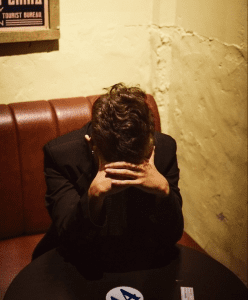
Who can help?
Anxiety isn’t a choice. But, we do have a choice in how we respond and deal with it. Dealing with Anxiety is often hard! Without knowing, we let it dictate our lives and narrow our opportunities. We allow it to stop us from doing the things we want, from doing things that inspire and support us. But know that it DOESN’T HAVE TO BE THIS WAY! You can still live a meaningful, fulfilling life even when anxiety is still lurking.
When something produces symptoms of anxiety, we naturally avoid it. Which to a certain extent is understandable, because, let’s be honest, who wants to feel distressed? BUT avoidance feeds anxiety its favourite food – the more we avoid a situation, the stronger the reaction will be. The key is to accept the presence of anxiety, instead of fighting it.
Meditation, Yoga and other calming practices can help diminish anxiety in both the short and long term. Being able to speak about what you are going through can be very helpful. Opening up to a friend or a family member may be the first step towards feeling understood and supported through your anxiety.
Yet, sometimes anxiety can be difficult to manage without professional help. Anxiety has been recorded to be one of the most common reasons why people seek therapeutic help or support. If it all feels like it is too much, you might benefit from the support of a professional like psychotherapists, counsellors or psychologists. By working with a therapist to face your fears, you can learn that what you are afraid of is usually unlikely to happen; you are better at coping with anxiety than you expect; and you are better at coping with negative outcomes that you expect.
However, if you feel like it is difficult to open up to someone face-to-face, we at kellimni.com are always here 24/7 where you will find professional online mentors ready to listen and support you. You can do all this and remain anonymous, therefore all your thoughts and feelings will be shared in complete privacy.
Fear, to a great extent, is born of a story we tell ourselves, and so I chose to tell myself a different story.

